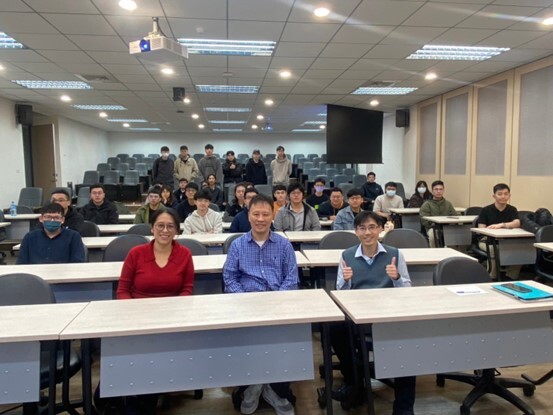➠<International Collaborations> Dr. Hsiao-Chun Wu delivered a speech titled "Advanced Signal Processing Techniques for Complex Big Graph Data Analysis" at the 6G Communications and Sensing Research Center on Jan. 04, 2024.
Date:2024/01/04 (四) 10:30~12:00
Venue:工EC2002
Topic: Advanced Signal Processing Techniques for Complex Big Graph Data Analysis
On January 4, 2024, Professor Hsiao-Chun Wu visited the 6G Communications and Sensing Research Center to deliver a lecture entitled "Advanced Signal Processing Techniques for Complex Large Graphic Data Analysis".
In today's talk, Prof. Wu talked about the big complex graphical data in signal processing and data analysis and pointed out the challenges of studying these data. Two pioneering research projects, a innamely automatic human-posture recognition and drug-target interaction prediction, involving the cutting-edge signal processing and data analysis techniques for processing high-dimensional graph data was presented and discussed in this talk.
The first project is Automatic Human Posture Recognition, which utilizes skeletal data obtained from Microsoft Kinect sensors, extracts features through advanced signal processing algorithms and uses classifiers such as Graph Convolution Networks (GCNs) and Tensor Regressors for processing. This research is of great significance in areas such as smart healthcare and human-machine interfaces.
The second project focuses on the prediction and analysis of drug-target interactions. Prof. Wu introduced a variety of high-dimensional features extracted from chemicals and proteins, and how these features can be used to train multilayer perceptrons (MLPs) to predict drug-protein interactions. The research in this project has significant implications for personalized medicine and accelerated drug discovery.
Prof. Wu emphasized that these findings demonstrate the great potential of advanced artificial intelligence and high-dimensional signal processing techniques in handling complex and large-scale graphical data. His innovative methodology, which can be applied to a wide range of fields, provides new solutions to complex big data-related challenges and will be the cornerstone of an increasing number of research breakthroughs in the future.


